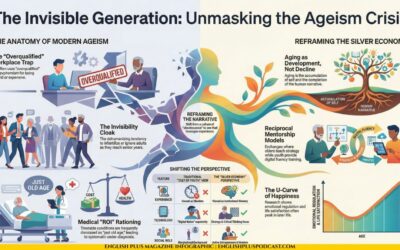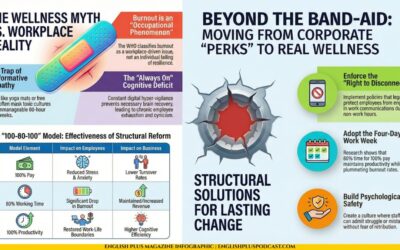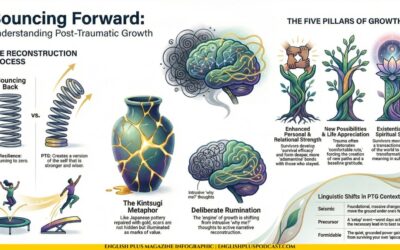The Gist
When we talk about racial profiling and police brutality, we’re addressing not just isolated incidents but a systemic issue that affects individuals and communities on a deep level. These social issues are not only painful reminders of historical injustices but also real, ongoing problems that continue to shape the way many people experience law enforcement and justice in the present day.
What Is Racial Profiling?
Racial profiling occurs when law enforcement targets individuals for suspicion of crime based on their race, ethnicity, or nationality rather than any evidence of wrongdoing. It’s the act of making assumptions about someone’s likelihood to commit a crime based on the color of their skin or their ethnic background. This practice isn’t just unfair—it’s harmful, both to individuals and to society as a whole. It creates a deep mistrust between communities and law enforcement, which makes it harder for police to do their jobs effectively.
Think about it like this: Imagine walking into a store and immediately being followed by security, not because you did anything suspicious, but simply because of your race. Now imagine this happening over and over again. How would that affect your sense of safety, fairness, and belonging in your own community?
Racial profiling not only stigmatizes individuals but also reinforces harmful stereotypes. It disproportionately affects Black, Latino, and Indigenous communities, leading to higher rates of stops, searches, and arrests, often without any evidence of criminal activity.
What Is Police Brutality?
Police brutality refers to the excessive and often unlawful use of force by police officers. While police are tasked with protecting and serving the public, brutality undermines this responsibility, turning those who are supposed to uphold the law into perpetrators of violence. Police brutality can take many forms, including physical violence, psychological intimidation, and even lethal force.
In recent years, the rise of technology and social media has brought increased attention to incidents of police brutality, especially through the sharing of videos that capture these disturbing encounters. The world watched in horror as George Floyd’s life was taken in 2020 during an encounter with police, igniting a global movement calling for justice and accountability.
But George Floyd’s case is far from the only one. The list of names—Breonna Taylor, Michael Brown, Eric Garner—continues to grow, each one representing a life cut short and a community devastated.
Real-Life Impact: How These Issues Affect Communities
Racial profiling and police brutality don’t just affect individuals; they impact entire communities. When a community feels targeted by law enforcement, trust breaks down. People become less likely to cooperate with police, even in situations where they need help, because they fear they’ll be treated unfairly or with violence. This creates a cycle of fear and tension between the police and the public, making it harder for communities to thrive.
For many Black and brown communities, interactions with law enforcement often carry the weight of historical injustices, like slavery, segregation, and Jim Crow laws, which have perpetuated systems of inequality. These historical traumas make incidents of police brutality particularly painful and reinforce the feeling that the system isn’t built to protect everyone equally.
Why Does It Keep Happening?
You might wonder, with all the awareness and protests, why do racial profiling and police brutality continue to persist? The answer lies in the complexity of systemic racism. Systemic racism is embedded in the policies, practices, and attitudes that shape how institutions like law enforcement operate. Even well-meaning officers working in a system that has discriminatory practices can end up perpetuating injustice.
Additionally, the lack of accountability in many police departments contributes to the problem. When officers are not held responsible for their actions, it sends a message that brutality will be tolerated or ignored, further eroding public trust.
What Can Be Done to Address These Issues?
Addressing racial profiling and police brutality requires both systemic change and individual action. On a broader level, there needs to be a push for police reform, which can include measures like banning chokeholds, improving training on de-escalation techniques, and ensuring that officers are held accountable when they violate the law.
On a personal level, education is key. Understanding the history of policing in marginalized communities can help you recognize how these issues have developed and why they persist. Listening to the voices of those affected, amplifying their stories, and advocating for policy changes are important steps in combating racial profiling and police brutality.
Supporting organizations that work to protect civil rights and hold law enforcement accountable can also make a big difference. Movements like Black Lives Matter have brought critical attention to these issues, and continuing to support these causes is one way to help.
Take Action: Stand Against Injustice
Racial profiling and police brutality are not just problems for one community—they are issues that affect all of society. Whether you have experienced these issues firsthand or are learning about them now, you can play a role in the fight for justice. Start by staying informed, educating others, and supporting policies that promote equality and accountability.
We all have a responsibility to create a more just and fair society. By standing up against racial profiling and police brutality, you’re helping to shape a future where everyone can feel safe, respected, and protected, regardless of the color of their skin. Take what you’ve learned and use it to advocate for a better, more equitable world.
Expand Your Vocabulary
- Racial Profiling: The act of suspecting or targeting someone based on their race or ethnicity rather than any actual evidence. In everyday usage, this term is applied when people are judged or treated differently simply because of their appearance, such as, “Being stopped in the store for no reason felt like racial profiling.”
- Systemic Racism: Discrimination that’s ingrained in the policies, practices, and culture of institutions. For example, “Systemic racism affects how schools, workplaces, and even health care operate.”
- Police Brutality: The use of excessive or unnecessary force by police officers, often resulting in harm. In daily language, it can be referenced as, “Protests against police brutality have been happening across the country.”
- Excessive Force: Force that goes beyond what is necessary to handle a situation. You might say, “Using excessive force in an argument only escalates the problem.”
- Trust Breakdown: A collapse in trust between two parties, often between communities and law enforcement in this context. In general terms, “There was a breakdown of trust between the team after the project failed.”
- Accountability: Taking responsibility for actions and being held responsible for wrongdoing. In a sentence, “Without accountability, it’s hard to maintain trust in any organization.”
- De-escalation Techniques: Methods used to reduce the intensity of a conflict or potentially violent situation. In everyday conversation, you could say, “Using de-escalation techniques can help prevent a heated argument from turning into a fight.”
- Marginalized Communities: Groups that are pushed to the edges of society and face discrimination or exclusion. For example, “We need to advocate for policies that support marginalized communities and promote equality.”
- Protest: A public demonstration expressing strong objection to something. “After the new policy was announced, many people organized a peaceful protest downtown.”
- Civil Rights: The rights of citizens to political and social freedom and equality. In conversation, you might hear, “Fighting for civil rights has been a long-standing struggle, and the work is far from over.”
Let’s Talk
- How does racial profiling affect the way people perceive their own safety and freedom? Have you or someone you know ever felt profiled based on appearance?
- What do you think contributes to the ongoing issues of police brutality? Are there changes in law enforcement policies or training that could help improve the situation?
- In what ways can individuals or communities hold law enforcement accountable for excessive force? How important is it for police departments to build trust with the communities they serve?
- Systemic racism is often deeply rooted in institutions. Can you think of other areas in society where this might exist, and what can be done to address it?
- How can people become more aware of racial profiling and police brutality, and what actions can they take to support affected communities?










0 Comments